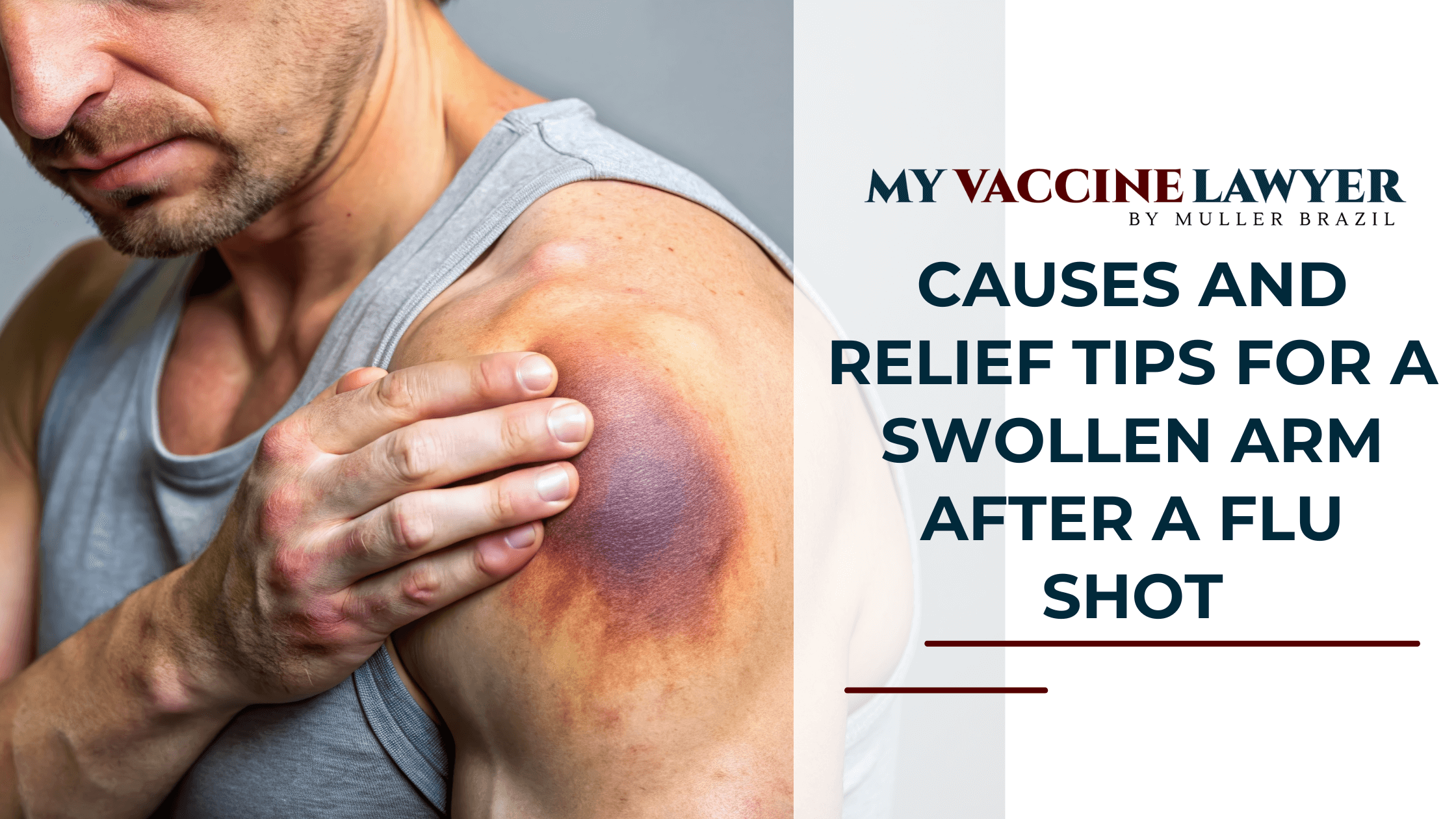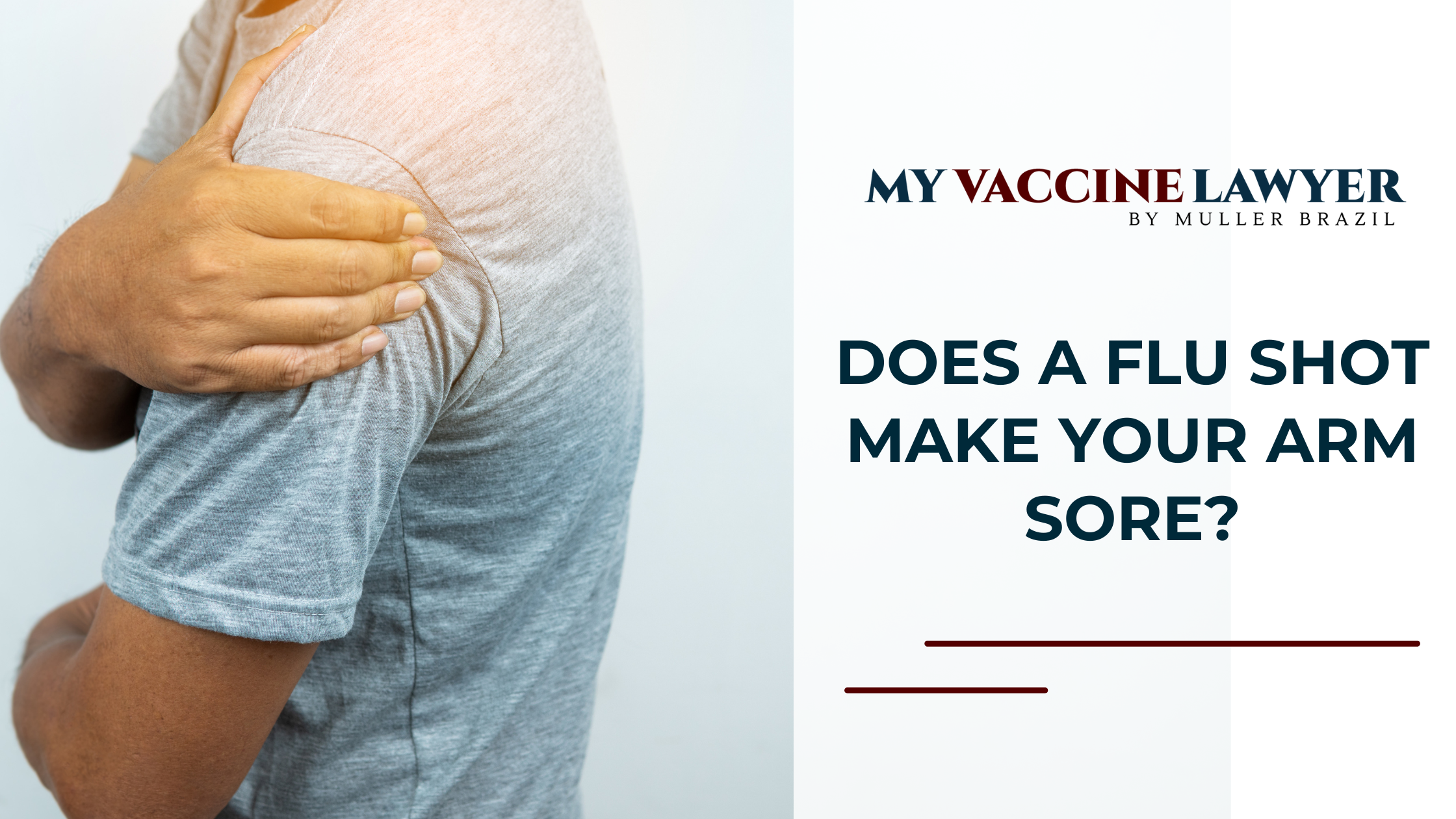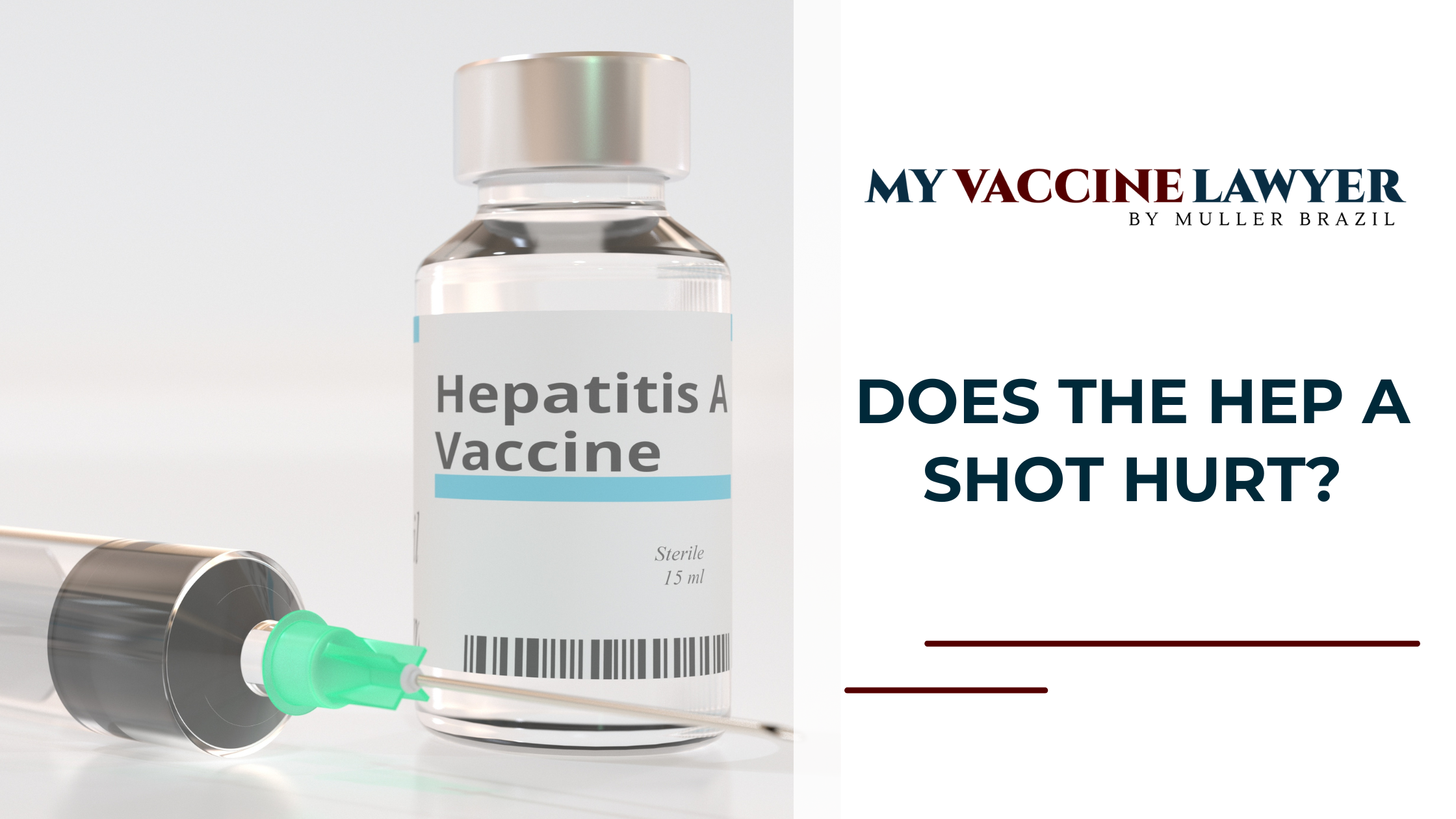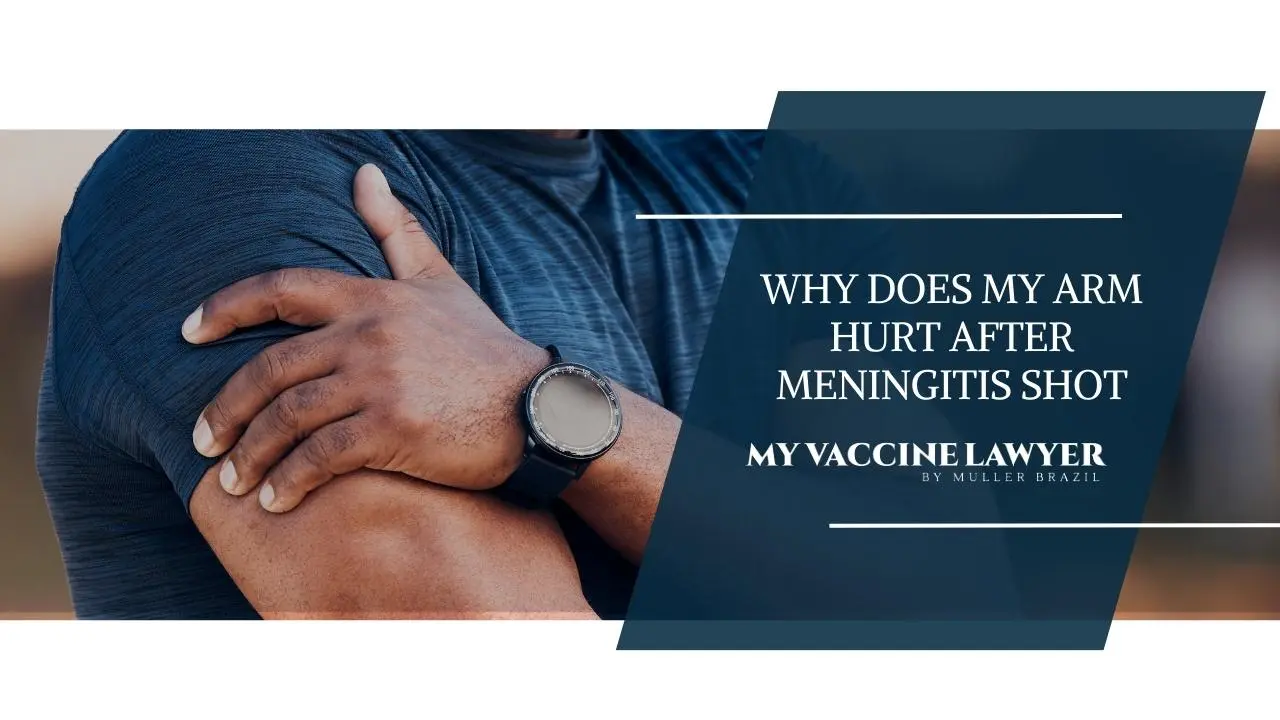Causes and Relief Tips for a Swollen Arm After a Flu Shot
Flu shots can cause arm swelling due to your body's immune response, but if the swelling worsens or persists, it may signal a more serious issue...
6 min read
Vaccine Injury Law Resources / Arm Pain / Arm Pain After a Meningitis Shot: Causes, Remedies, and Legal Options
 Max Muller
:
Nov 2, 2023 12:00:00 PM
Max Muller
:
Nov 2, 2023 12:00:00 PM
This is a must-read for anyone experiencing discomfort after receiving a meningitis vaccine. Arm pain, redness, and swelling are common but typically resolve within a few days. Learn effective remedies like cold compresses, pain relievers, and gentle arm movements to ease your symptoms. However, if your pain persists or worsens, it could indicate SIRVA, a condition requiring medical attention.
Understanding how to manage post-vaccination arm pain ensures a smoother recovery and peace of mind. Stay informed and take control of your health with these tips.
The unexpected experience from a simple vaccination to battling subsequent after-effects introduces many questions, uncertainties, and a conspicuous need for adept guidance.
At My Vaccine Lawyer, we meticulously unravel the specifics of vaccine injuries, providing insights, legal advice, and a supportive hand, especially focusing on your experiences with the meningococcal vaccine, including meningococcal conjugate and serogroup B meningococcal (MenB) vaccines. Ensuring you're armed with vital knowledge and aligned with accessible resources is important when maintaining your well-being and that of those around you through every step.
Meningococcal vaccines prevent meningococcal disease, a potentially severe illness caused by Neisseria meningitidis bacteria, which can notably affect the brain and spinal cord, potentially leading to dire consequences.
In the United States, individuals have access to two primary types of vaccines: meningococcal conjugate vaccine and MenACWY vaccines, designed to combat various disease serogroups.
Distinguished MenACWY vaccine brands, including Menactra®, Menveo®, and MenQuadfi®, have been integral in this preventative healthcare approach.
The meningococcal vaccine is particularly recommended for preteens and teens due to their increased risk of contracting meningococcal disease. Typically, preteens receive a dose before initiating high school, creating a foundational defense against the disease during crucial developmental years.
Moreover, teens and young adults attending college may receive a booster dose to bolster their immunity during a period where close-quarter living can expedite the transmission of bacteria.
Adults who missed this critical vaccination during their youth can also opt for the meningococcal vaccine, ensuring they are protected against the potential future outbreak of meningococcal disease.
The meningitis vaccine is administered through a precise and considered method to maximize its efficacy and minimize potential complications. All meningococcal vaccines including the meningococcal B vaccine are given in 0.5-mL injections utilizing a needle, ensuring a standardized dosage across varying demographics.
For teenagers and adults, the injection is administered into the deltoid muscle of the upper arm, a common site that allows for efficient absorption of the vaccine into the system while minimizing injection site pain. Conversely, the vaccine is administered into the thigh muscle for infants and young children, accommodating the different anatomical and physiological considerations pertinent to this age group. Injection site distinctions between age demographics are crucial to adhere to, optimizing the safety and effectiveness of the meningitis vaccination across varied age groups and physical developments.
Arm pain is common following the administration of meningococcal vaccines, as the Centers for Disease Control and Prevention (CDC) confirms. Meningitis shots, like many vaccinations, can cause some discomfort or pain at the injection site, typically described as a quick pinch or sting during the shot. Mild side effects such as soreness, redness, or swelling where the shot was given are common but usually last only a few days.
When the meningitis vaccine is administered, the body recognizes its components as foreign and promptly initiates an immune response, which can result in pain at the injection site. While the reaction is normal, signifying an active immune system, the resultant arm pain can range from a mild, barely noticeable discomfort to a more pronounced and debilitating experience for some individuals. Does the meningitis shot hurt? For many, arm pain is a fleeting inconvenience, but for others, it is the first step in managing and understanding this unexpected post-vaccination symptom.
Post-meningococcal vaccines, alleviating arm pain likely involves a combination of home remedies and potential medical interventions, ensuring comfort and reducing any adverse impact on daily activities.
Starting with a simple yet effective approach, applying a cold compress to the injection site for intervals of 10-15 minutes multiple times a day proficiently reduces inflammation and numbs the area, providing immediate relief.
Additionally, the utilization of over-the-counter pain relievers, such as acetaminophen or ibuprofen, serves to not only reduce pain but also manage inflammation – always adhere to the recommended dosage and consult a doctor if uncertainties arise. Engaging in gentle, frequent arm movements reduces stiffness and discomfort; consider incorporating light stretches or exercises to maintain mobility and alleviate pain. Massaging the injection site gently also increases blood flow and mitigates inflammation, further helping pain alleviation. Should arm pain persist or escalate, contacting your doctor becomes imperative for exploring additional treatment options and potentially prescribing alternative medications.
Learn how to how to prevent arm pain after a vaccine.
While it is quite conventional to experience soreness and redness at the injection site within the initial 1-2 days post-receiving the meningitis shot, arm pain duration varies substantially among individuals. A vast majority might also experience a phase of muscle pain in the arm, which, under routine circumstances, gradually goes away without intervention. However, when symptoms persist but exacerbate over weeks or months, it could indicate a relatively rare condition named SIRVA, an acronym for Shoulder Injury Related to Vaccine Administration. SIRVA can materialize do to improper injection techniques - too high or too deep into the shoulder. The misplacement of the needle instigates inflammation within the shoulder joint, adversely affecting and potentially damaging tendons, muscles, and ligaments, thereby presenting a requirement for targeted treatment options and potentially prolonged medical intervention.
SIRVA (Shoulder Injury Related to Vaccine Administration) exhibits a distinct set of symptoms, generally emerging within 48 hours following a meningitis shot, each of which signals an immediate need for attention and potential intervention:
Recognizing the importance of swift diagnosis and treatment is paramount to mitigate potential complications and pave the way for optimal recovery, protecting against developing more serious symptoms.
The aftermath of a vaccine injury can be both physically and emotionally taxing. Did you know you might be eligible for financial compensation under certain circumstances through the Vaccine Injury Compensation Program (VICP)? Below are the criteria and compensation details:
Seeking compensation with experienced vaccine injury lawyers lets you focus squarely on recovery without the looming shadow of a financial burden, simultaneously safeguarding your health and financial stability.
In the 1980s, amidst rising concerns regarding vaccine safety and increasing lawsuits against vaccine manufacturers, the Vaccine Injury Compensation Program (VICP) was birthed through a joint endeavor between vaccine manufacturers and Congress.
Implemented with a double objective, VICP aims to compensate those adversely affected by vaccines while ensuring vaccine stability and availability across the United States.
This program is possible due to a tax of $0.75 levied on every vaccine sold within the nation, channeled directly into the VICP fund. This fund serves a crucial role in compensating individuals who, in rare occurrences, experience detrimental side effects, such as SIRVA or severe allergic reactions, due to their meningitis vaccination or any other vaccine under VICP purview.
Moreover, while VICP operates as a safety net for those impacted by vaccine injury, it also shields vaccine manufacturers from individual injury lawsuits, ensuring that vaccines remain abundant and accessible to the general public.
The assurance of financial compensation through VICP provides a structured pathway for individuals who have suffered from vaccine-related injuries to navigate their recovery without being burdened by prohibitive medical costs.
Individuals must file a petition, and upon verification of the injury being correlated to a VICP-covered vaccine, the compensation is given, providing a monetarily fair receipt for the injuries suffered due to the vaccine.
Our team of skilled experts at My Vaccine Lawyer specializes in guiding SIRVA cases and provides complimentary case assessments. Start your road to recovery by contacting My Vaccine Lawyer today!
Mr. Muller currently devotes the majority of his law practice to aggressively fighting for the victims of unsafe drug and medical device injuries, as well as vaccine injuries and vaccine reactions involving the flu shot, TDaP/DTaP vaccine, and more. He has handled hundreds of SIRVA injury cases (shoulder injury related to vaccine administration), especially those involving bursitis, tendonitis, frozen shoulder, and rotator cuff tears. Mr. Muller also handles cases where vaccines caused serious nerve injuries such as Guillain-Barre Syndrome. Mr. Muller has recovered millions of dollars in compensation for his clients in the Vaccine Injury Compensation Program.

Flu shots can cause arm swelling due to your body's immune response, but if the swelling worsens or persists, it may signal a more serious issue...

A flu shot can make your arm sore due to muscle irritation and your immune response, but persistent pain could signal a more serious issue requiring...

The hepatitis A shot typically causes mild pain, like a quick pinch and brief arm soreness, but severe reactions are rare. In rare cases, some people...
